The Essential Guide to Recycling Laboratory Equipment
The Essential Guide to Recycling Laboratory Equipment
Our planet is precious, and every action we take to protect it counts. One area that might not immediately come to mind when thinking about sustainability is the recycling of laboratory equipment.
Whether you run a large research facility or a small lab, understanding how to responsibly recycle old, unused, or broken equipment can make a significant difference.
This guide will walk you through everything you need to know about laboratory equipment recycling, from why it's important to how to do it effectively.
Why Recycling Laboratory Equipment Matters
Laboratories generate a considerable amount of electronic waste (e-waste), which can be harmful to the environment if not handled correctly.
Chemicals, heavy metals, and other hazardous materials often found in lab equipment can contaminate soil and water, posing risks to human health and wildlife.
Recycling laboratory equipment is essential not only for reducing environmental impact but also for complying with regulations. Many regions have strict guidelines on e-waste disposal, and failure to adhere to these can result in hefty fines.
The Environmental Impact of E-Waste
E-waste is a rapidly growing problem worldwide. According to a 2020 report by the Global E-waste Statistics Partnership, the world generated 53.6 million metric tons of e-waste in 2019 alone. Only 17.4% of this was recycled appropriately.
Recycling helps recover valuable materials like gold, silver, copper, and platinum, which can be reused in manufacturing new products. It also reduces the need for mining new raw materials, which is a resource-intensive and environmentally damaging process.
Benefits of Responsible Recycling Services
Responsible recycling services ensure that your old lab equipment is disposed of in an environmentally friendly manner. These services typically dismantle the equipment, separate hazardous materials, and recycle the valuable components.
Choosing a certified recycling service provides several benefits:
- Compliance with Regulations: Certified recyclers follow all local, state, and federal regulations, protecting your organization from legal repercussions.
- Data Security: Many lab devices store sensitive data. Certified recyclers ensure that this data is destroyed securely.
- Environmental Protection: Responsible recyclers employ methods that prevent hazardous materials from harming the environment.
How to Start the Recycling Process
Starting the recycling process can seem daunting, but it doesn't have to be. Here are some steps to guide you through:
- Inventory Your Equipment: Identify all the equipment that needs recycling. This includes everything from old computers and lab instruments to smaller items like cables and batteries.
- Choose a Certified Recycler: Look for recyclers certified by organizations such as e-Stewards or R2. Certifications ensure that the recycler meets high standards for environmental and data security practices.
- Arrange for Pickup or Drop-off: Many recyclers offer convenient pickup services, especially for large quantities of equipment. For smaller amounts, you may need to drop off the items at a designated location.
Finding Responsible Recycling Services
When searching for responsible electronics recycling services in Massachusetts, it's crucial to do your homework. Not all services are created equal, and some may not follow proper procedures.
Start by checking the credentials of potential recyclers. Look for certifications from reputable organizations and read reviews or ask for references from other laboratories or businesses. It's also a good idea to visit the recycling facility if possible to see their processes firsthand.
Electronics Recycling in Massachusetts
If you're located in Massachusetts, you're in luck. The state has several excellent options for lab equipment recycling, including services specifically geared toward laboratory equipment.
At Data Shredder Corporation, we provide comprehensive and responsible recycling solutions for laboratory equipment. Our services are designed to meet the unique needs of research facilities, ensuring that all e-waste is handled in an environmentally friendly manner. We adhere to all HIPAA guidelines to ensure safe and secure disposal.
Preparing Equipment for Recycling
Before sending your equipment off for recycling, it's essential to prepare it properly. Here are some steps to follow:
- Remove Data: Ensure all data is erased from computers, servers, and other devices. Many recyclers offer data destruction services if you're unsure how to do this.
- Sort Equipment: Separate different types of equipment and components. This makes it easier for the recycler to process the items.
- Label Hazardous Materials: Clearly label any equipment that contains hazardous materials. This helps the recycler handle these items safely.
Understanding the Recycling Process
Knowing what happens to your equipment once it leaves your facility can be reassuring. Here's a typical recycling process:
- Collection: The recycler collects the equipment from your location.
- Sorting and Dismantling: Items are sorted by type and dismantled. Reusable parts are separated from non-reusable ones.
- Processing: Reusable components are refurbished, while non-reusable ones are broken down into raw materials. Hazardous materials are handled with care to prevent environmental contamination.
- Certification: The recycler provides a certificate of recycling, confirming that your equipment was processed responsibly.
Common Challenges and Solutions
Recycling laboratory equipment isn't without its challenges. Here are some common issues and how to address them:
- Data Security: Ensuring data is completely erased can be difficult. Work with a recycler that offers secure data destruction services.
- Identifying Hazardous Materials: Lab equipment often contains hazardous substances. Consult with your recycler for guidance on properly identifying and labeling these items.
- Cost: Recycling can be expensive, especially for large quantities of equipment. Look for recyclers that offer bulk discounts or partner with other local labs to share costs.
Building a Sustainable Future
Recycling laboratory equipment is just one part of building a sustainable future. Consider implementing other green practices in your lab, such as reducing energy consumption, using eco-friendly materials, and encouraging a culture of sustainability among staff.
Small steps can lead to significant changes. By fostering an environment of sustainability, you're not only protecting the planet but also setting a positive example for others in your industry.
Ready To Safely Recycle Your Lab Equipment?
Recycling laboratory equipment is a crucial step towards a more sustainable and responsible future. Take action today to start recycling your laboratory equipment responsibly through business computer recycling.
Partner with Data Shredder Corporation in Massachusetts and join the movement towards a greener, safer future. Contact us today to learn more about our comprehensive recycling solutions tailored for research facilities like yours.
Together, we can make a significant impact and build a healthier planet for future generations.

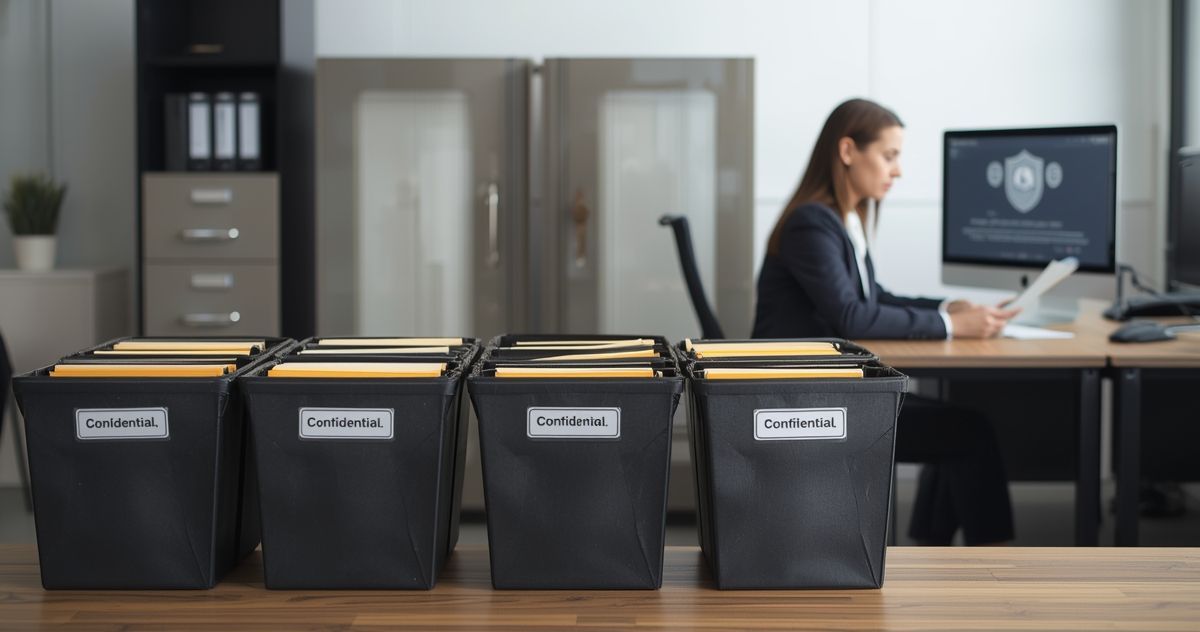
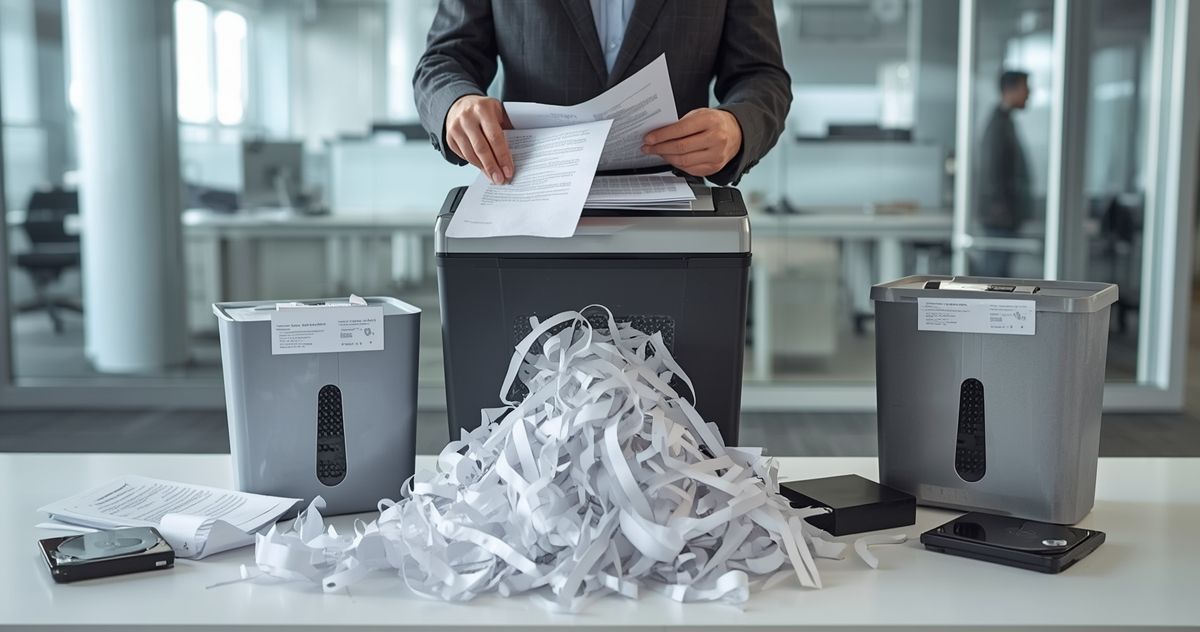

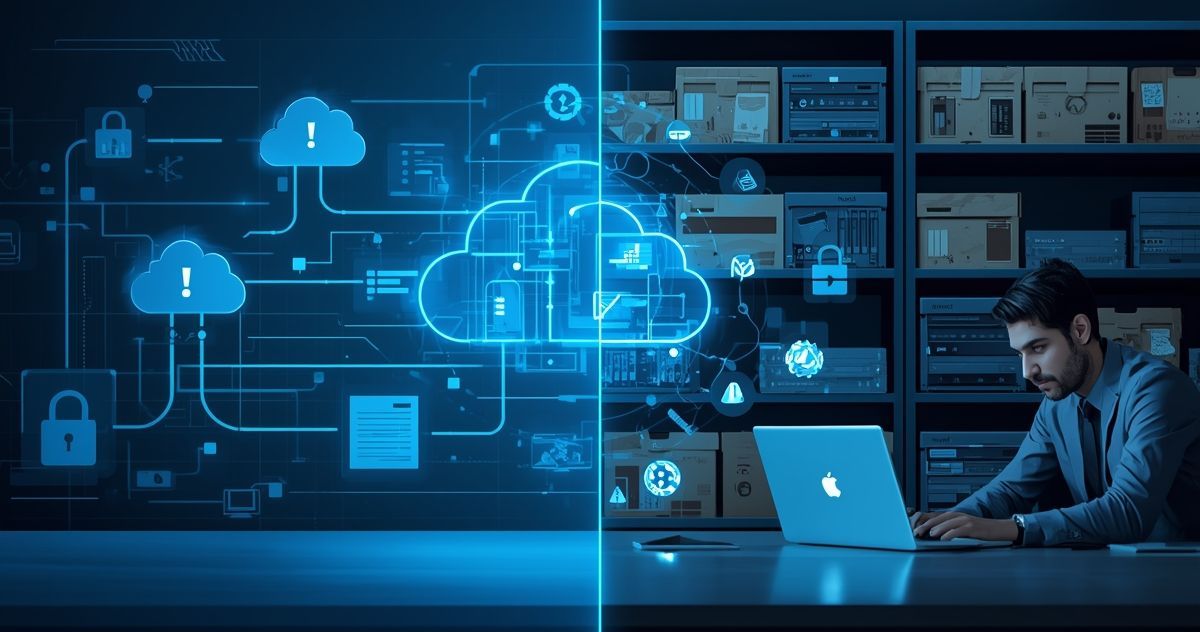
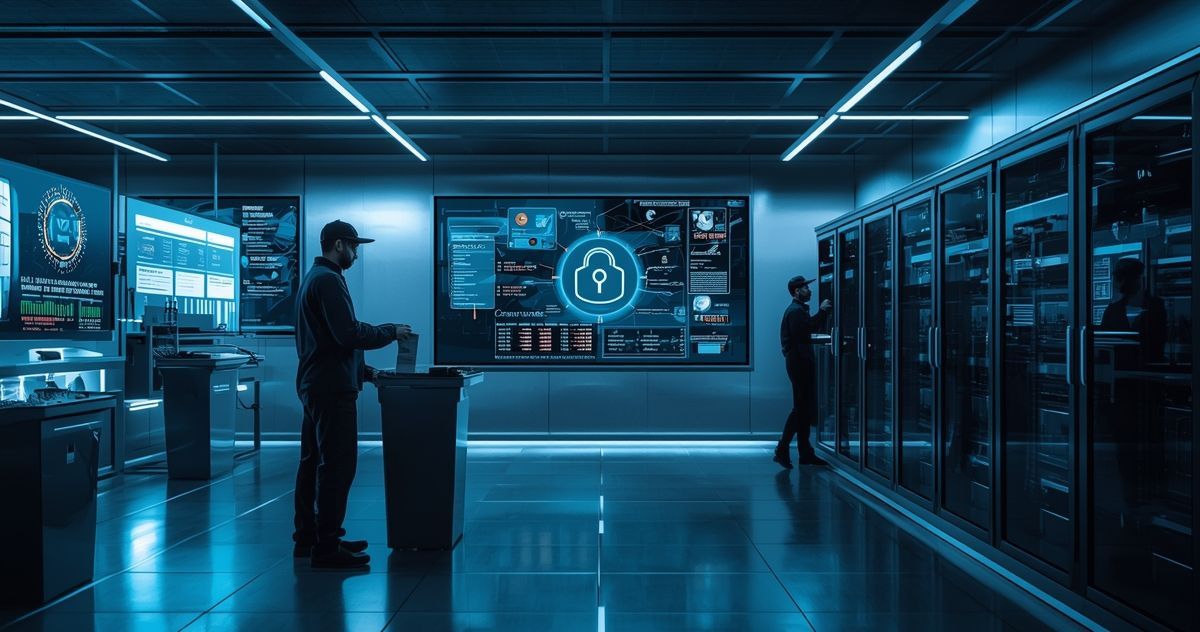

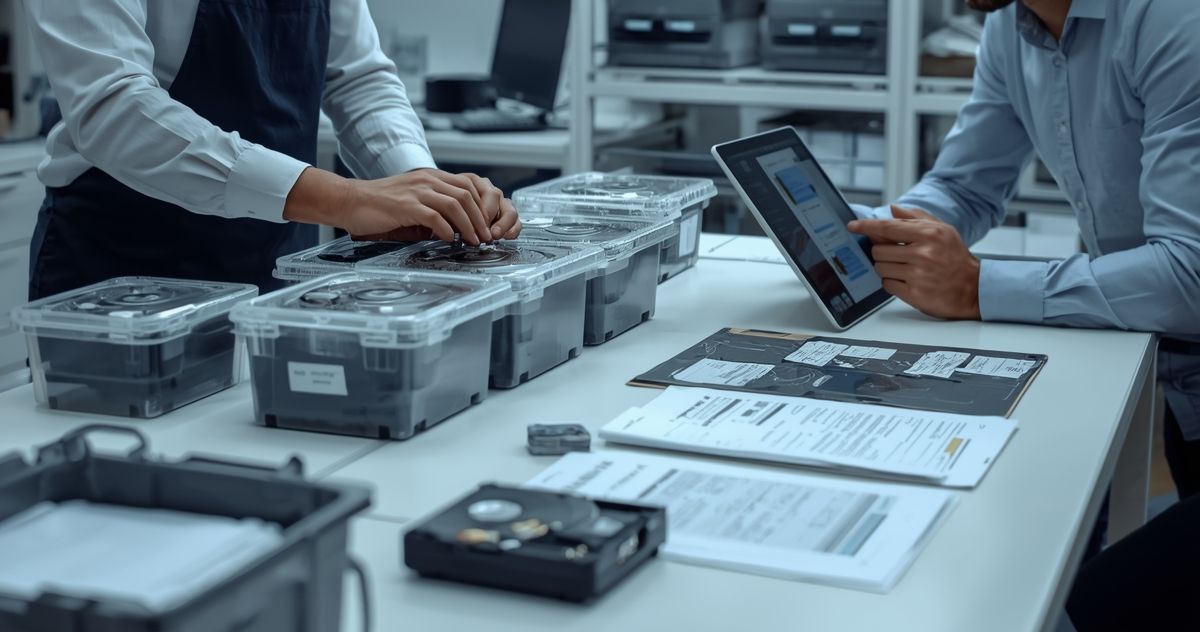

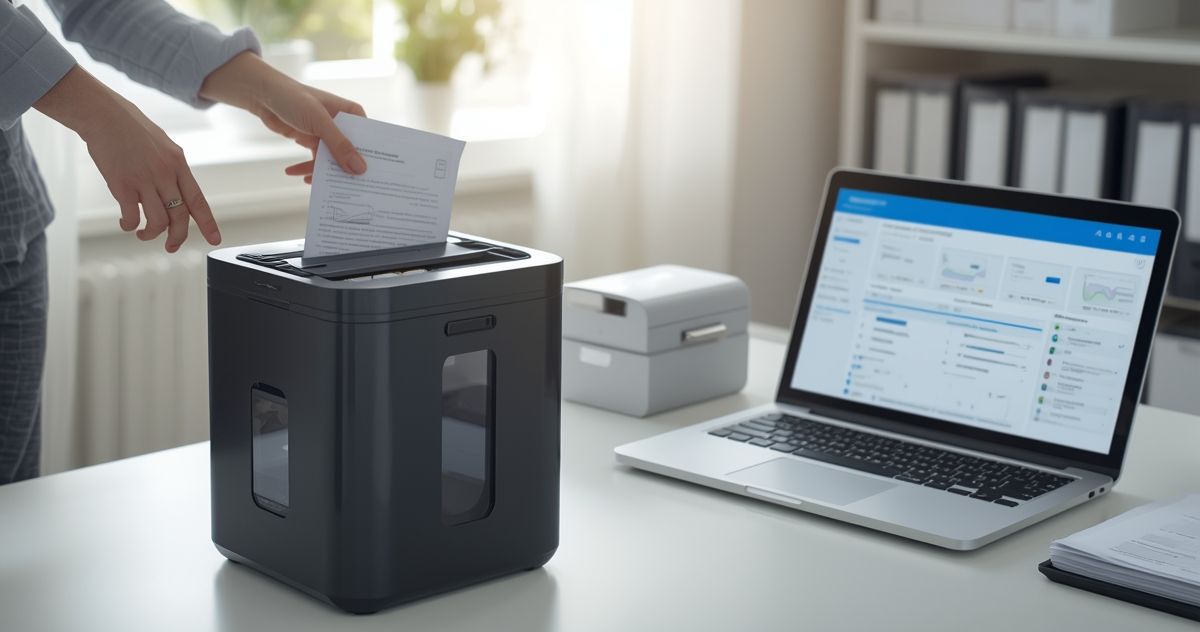

Share On: